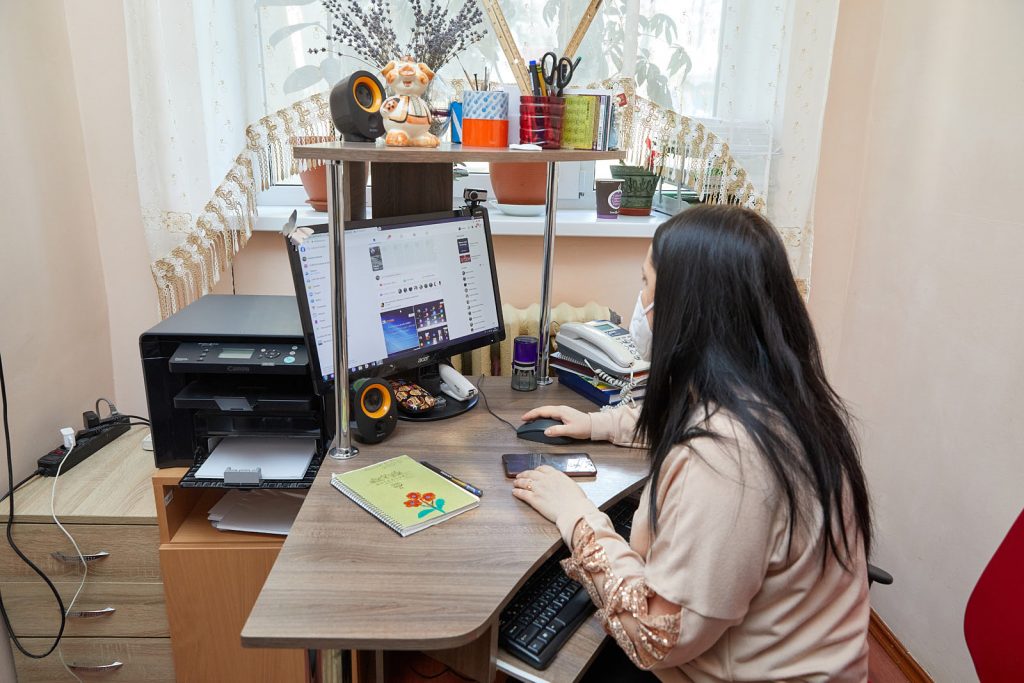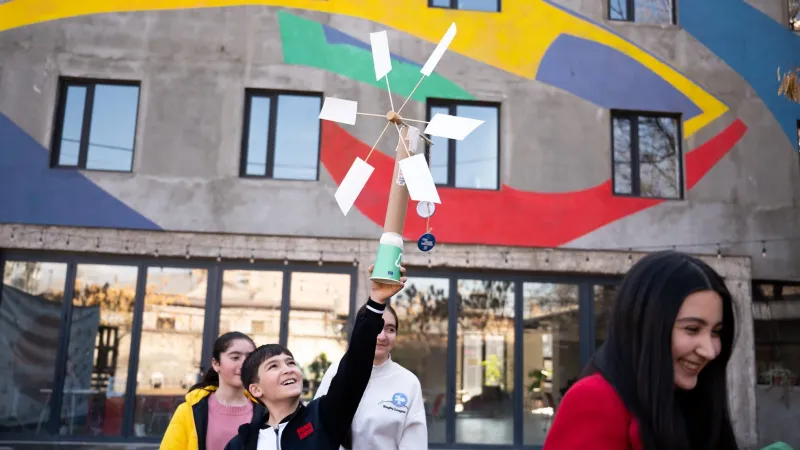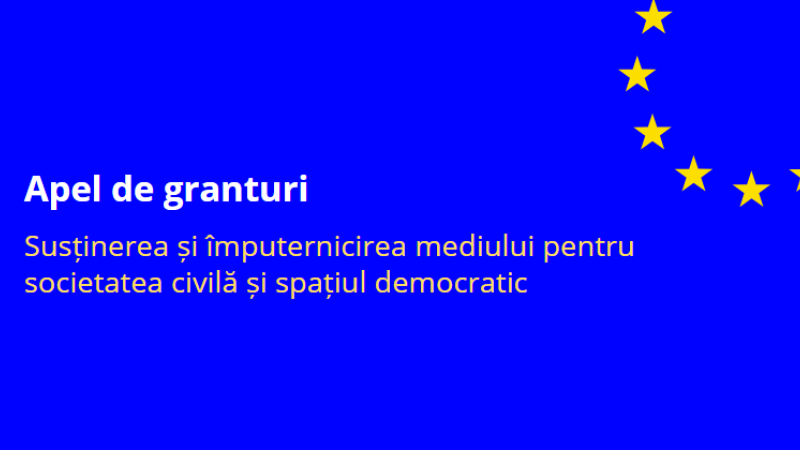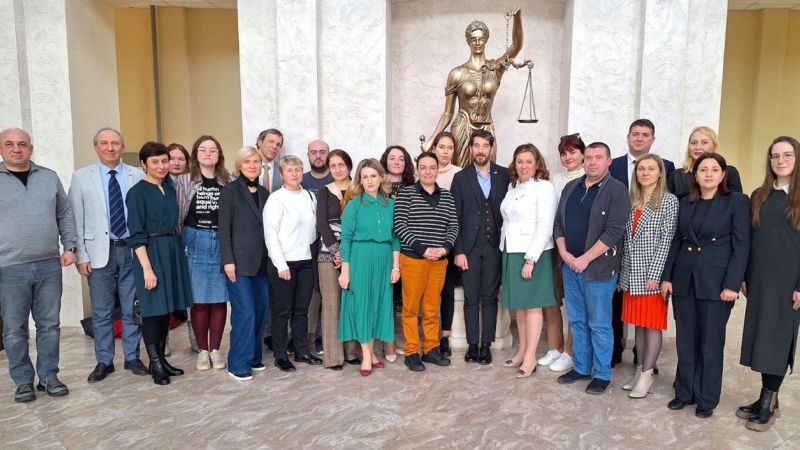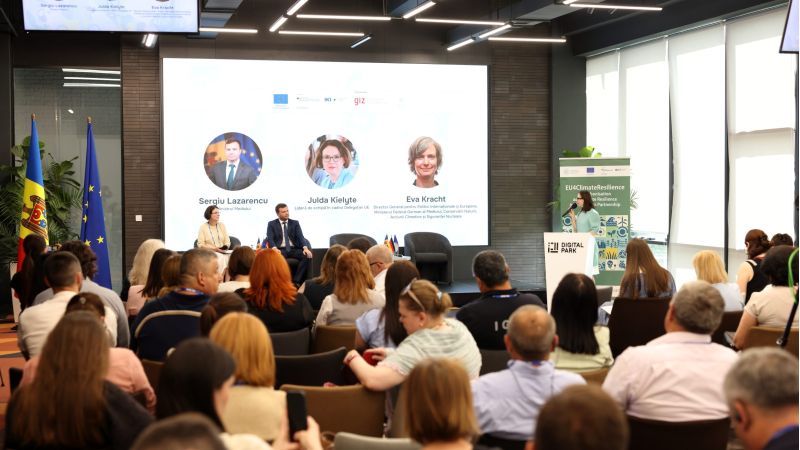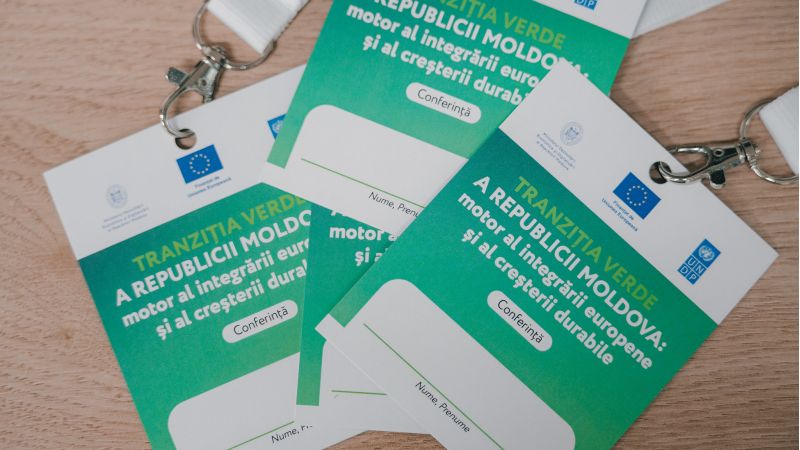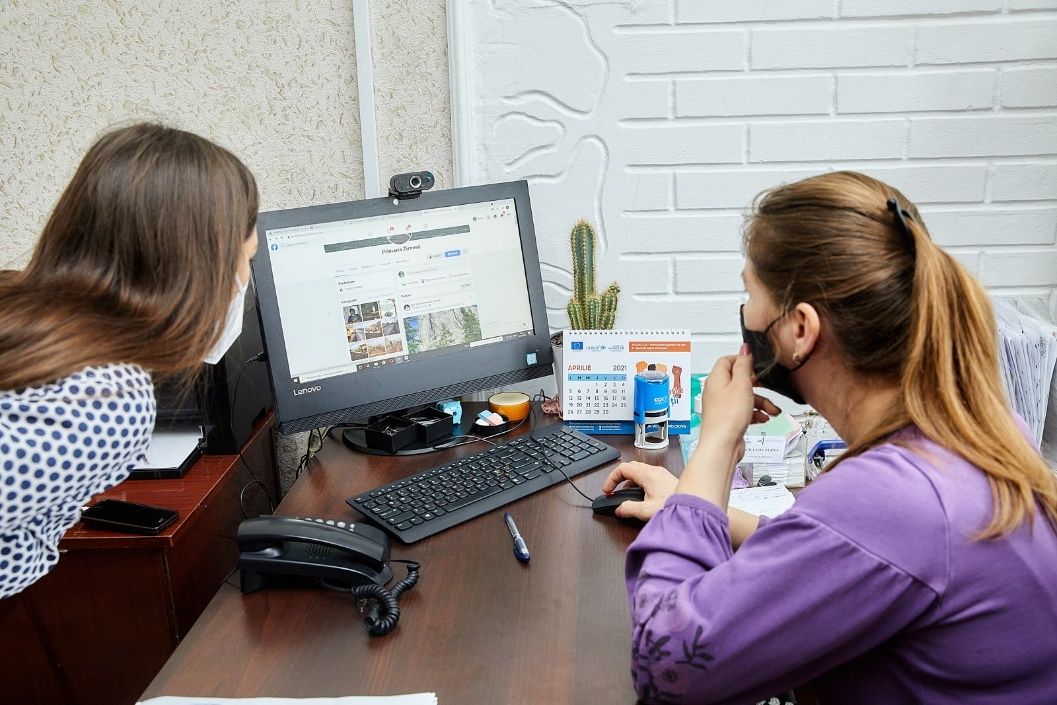
Curs de formare digitală a autorităților publice locale, organizat cu suportul UE
Astăzi, competența digitală este o abilitare esențială pentru Autoritățile Publice Locale. În cadrul proiectului EVA “Promovare a egalității de gen în raioanele Cahul și Ungheni”, finanțat de Uniunea Europeană, și implementat de UN Women Moldova în parteneriat cu UNICEF, timp de trei luni, au fost realizat un curs intens de formare digitală a autorităților publice locale.
„Nu am știut nimic despre ZOOM și a fost ceva tare nou. Nu știam cum să setez, cum să organizăm ceva. Ședințele consiliului local le vom putea face și online, ședințele cu partenerii, poate chiar cu cetățenii. Vom lucra mai ușor, îi vom implica mai mult”, a spus Elena Neiculov, secretara Consiliului Comuna din Zîrnești.
Scopul acestor instruiri a fost de a forma sau extinde, după caz, competențele digitale, utilizând platforme și instrumente on-line, accesarea serviciilor guvernamentale, efectuarea plăților online sau utilizarea rețelelor de socializare.
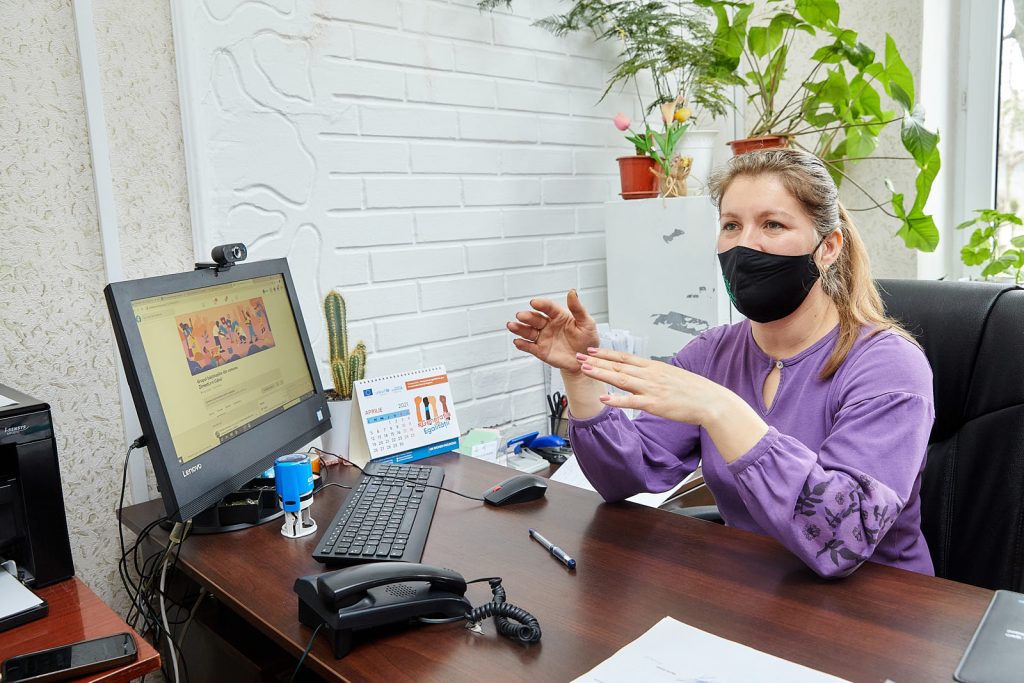
„Acest curs a venit ca o gură de aer. Pentru că ni se cerea să facem totul mai ușor. Lucrul cu părinții să fie mai ușor. Se explica și interacționa pe grupurile de pe rețelele de socializare și de multe ori se creau neînțelegeri. Respectiv, părinții cereau să găsim soluții, ne-au constrâns cumva să găsim niște metode mai simple și mai comode. Automat trebuia să creăm grupuri pe ZOOM. Proiectul EVA a venit tocmai la timp. Eu când am auzit de curs, i-am cerut domnului primar să mă includă și pe mine. Chiar aveam nevoie și chiar mi-a fost de folos. Una e când vezi filmulețe pe internet și alta când vine formatorul, explică pas cu pas. ”, a menționat Maria Cozma, directoarea grădiniței din Frăsinești.
Astfel, aproximativ 88 de specialiști din cadrul a 12 APL-uri din raioanele Cahul si Ungheni au fost instruiți în folosirea instrumentelor digitale în lucrul cu cetățenii.
În plus, abilitățile digitale vor contribui ca activitatea lor zilnică să devină mai eficientă, mai transparentă și mai responsabilă față de necesitățile cetățenilor, dar și ca o acțiune de răspuns la necesitatea actuală de a se adapta la situația creată de pandemia de Coronavirus.
